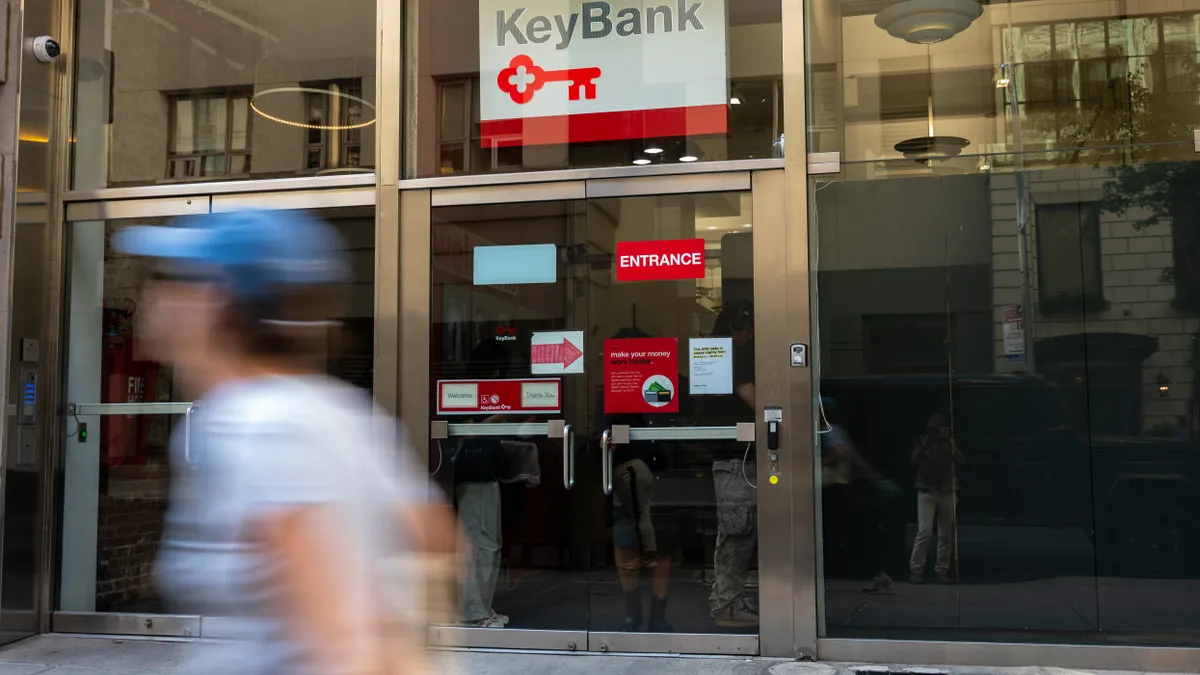Daylight, an LGBTQ+ focused neobank, is closing its doors at the end of next month, failing to scale in a high interest environment, CEO Rob Curtis wrote in a blog post Monday.
The announcement comes close on the heels of a feature published in New York Magazine that detailed a lawsuit brought by three former employees of the neobank alleging discrimination, whistleblower retaliation, and fraud.
“The banking industry is in a time of great change and after a long period of soul searching, I feel now is the right time to exit this market,” Curtis wrote in his blog.
Customers can access their money for transfer until June 30, the last day of banking operations, he added.
The March filing in a New York court is at least the second employee lawsuit against the company. The neobank’s former chief of staff, Cristina Rodgers, was sued in California in August, NY Mag reported.
Many allegations in the lawsuit are corroborated by interviews with current and former employees, who say that Curtis mismanaged the company and created a “psychologically unsafe” environment — something the employees thought they could avoid by working in an LGBTQ+ oriented start-up, the publication noted.
Curtis and his company refuted the claims alleged in the lawsuit. “Daylight is fully prepared to address these concerns in court,” a spokesperson for the company said, according to the publication.
Curtis, on his part, told American Banker in an email that the lawsuit had “no material impact” on the decision to shut down Daylight and that customer sign-ups had grown since the filing. The company has filed to dismiss the allegations, the outlet noted.
The thought to shut down Daylight first crossed in February when the neobank’s long-planned product aimed to help the community plan their finances and paths to parenthood failed to meet the expectations, Curtis wrote in the email to the outlet. As part of the phased close, the publication noted that the neobank has already laid off 13 full-time employees.
“Daylight's entire reserves were held by SVB and [when the bank failed] we began preparing plans to wind-down the brand, which were incorporated into the recent decision,” Curtis said in his email.
Daylight, founded in 2020, secured $15 million in fresh financing to put toward the launch of a new family planning offering, the company announced in November. The fintech’s latest financing round was led by Anthemis Group, with participation from CMFG Ventures, Kapor Capital, Citi Ventures, and Gaingels.
Challenger banks targeting niche customers are struggling to meet the market demands, according to Ron Shevlin, chief research officer at Cornerstone Advisors. He thinks the customer base of challenger banks is not a good source of making money since they don’t have enough money to spend and, as such, are also not great lending options.
Aspiration, a climate-conscious neobank, laid off 180 employees in April as a part of the companywide restructuring, while Kinly, a fintech focused on Black Americans, got sold to Greenwood.
“The neobank/challenger banks are hitting a wall on growth, and obviously, the funding to keep them alive is hard,” he said while talking about the threats fintechs face in the market amidst solid financial institutions.
Daylight is in talks about the acquisition of its brand and its cardholders though he could not divulge more details, Curtis told American Banker.
Though the neobank would have been a promising buying option, acquirers are apprehensive due to to lawsuits from former employees, especially after JPMorgan got into legal hassles with the acquisition of Frank, Jonah Crane, a partner at the advisory and investment firm Klaros Group, told American Banker.
In his parting words, Curtis thanked Daylight’s customers and highlighted its core beliefs.
“Daylight had a great run paving the way for US LGBTQ+ customers — we opened thousands of trans-inclusive debit accounts, and supported thousands of prospective LGBTQ+ parents’ plans for their families. Ultimately, though, we couldn’t provide these services in a way that covered our costs — this is likely a job for big banks and I hope they pick up the torch and carry forward our legacy,” Curtis wrote in his blog.






















